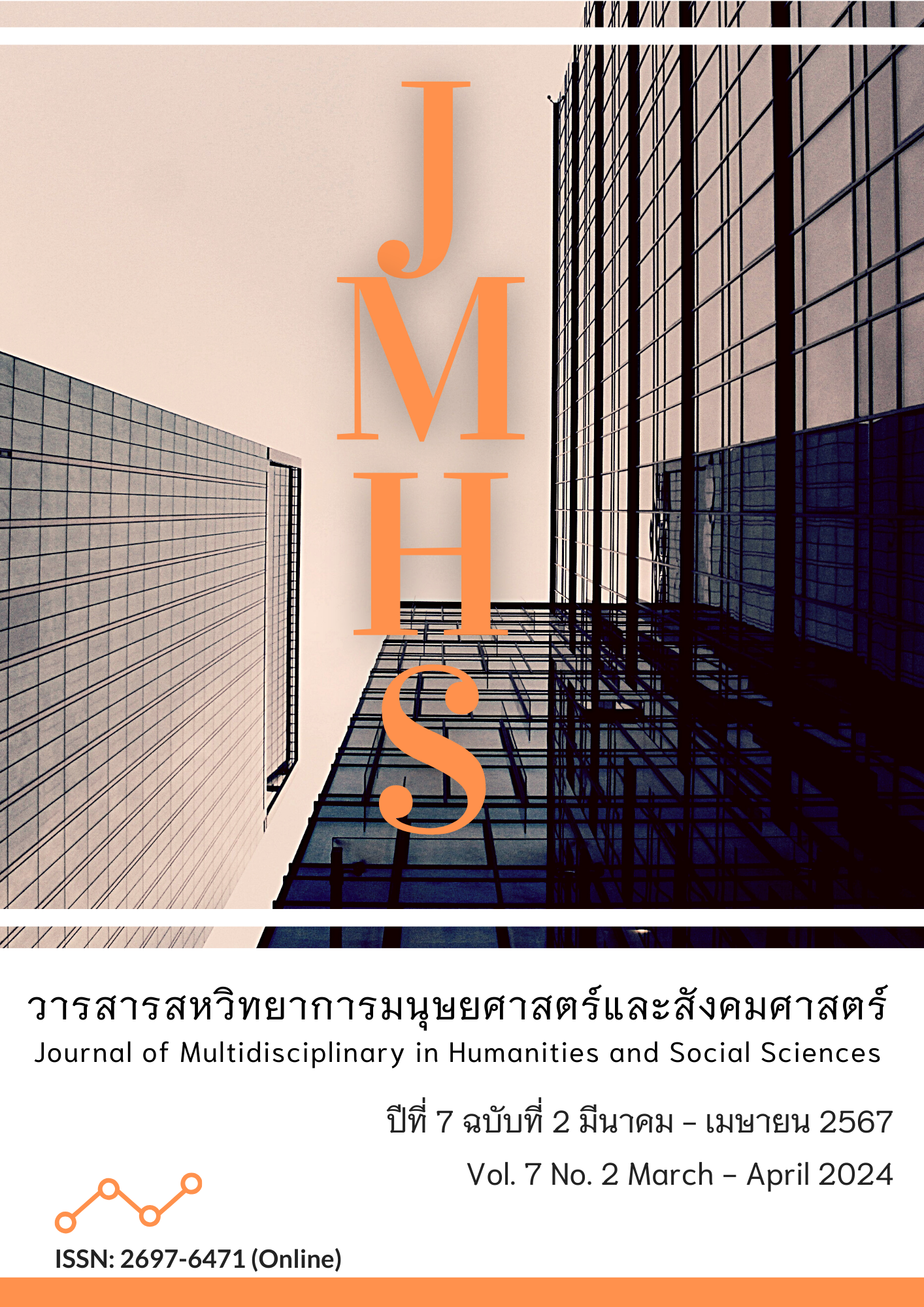The State and Buddhism: The Power Relations Between the State and the Thai Sangha
Main Article Content
Abstract
Sangha governance has existed since the Buddha's time, with the Lord Buddha as the supreme ecclesiastical ruler. During the early period of the Buddha, the Vinaya had not been established. Because most monks who come to ordination have the same intention. Entering into the practice of celibacy in order to attain the highest level of Dhamma is nirvana. The objectives of this qualitative research study were: 1) to study the power relations between the state and the Thai Sangha; 2) to study the role of power relations between the state and the Thai Sangha; and 3) to analyze the trend and direction of the power relations between the state and the Thai Sangha. The research was divided into three phases: Phase 1 involved documentary research. Phase 2 involved in-depth interviews with key informants, totaling 30 individuals. Phase 3 included focused group interviews with qualified individuals and experts, totaling 12 individuals. Data analysis across all three phases employed content analysis techniques within the context and verified data completeness using triangulation techniques.
The research revealed that, in Phase 1, it was found that Buddhism under the state exhibited a characteristic in terms of providing guidance in governance. An example was the case of the Lord Buddha laying down political principles and governance to King Licchavi, who governed in a moral and democratic manner, or confederation, considered to be one of the most democratic forms of governance at that time.
In Phase 2, it was found that the state played a role in supporting and protecting the religious aspects. The Sangha had a continuous role in politics and governance because Buddhism did not emerge and exist in isolation but was an integral part of society, interconnected with people's lives and various institutions, including those related to the economy, politics, and culture.
In Phase 3, it was found that Buddhism serves as a constructive force for the harmonization of society. It is an institution that transmits and instills culture and social ethics, with the responsibility of functioning as a mechanism to control the behavior of members of society. It aims to create equality in all aspects of society, including the economy, society, and politics, following the teachings of the Lord Buddha.
Article Details

This work is licensed under a Creative Commons Attribution-NonCommercial-NoDerivatives 4.0 International License.
Views and opinions appearing in the Journal it is the responsibility of the author of the article, and does not constitute the view and responsibility of the editorial team.
References
เกษฎา ผาทอง และ ธีรภัทร์ เสรีรังสรรค์. (2561). พระพุทธศาสนากับการเมืองในสังคมไทย. วารสารวไลยอลงกรณ์ปริทัศน์ (มนุษยศาสตร์และสังคมศาสตร์), 8(1), 195-207. สืบค้นจาก https://so06.tci-thaijo.org/index.php/var/article/view/146950
คึกฤทธิ์ ปราโมช, ม.ร.ว. (2548). พระพุทธศาสนากับคึกฤทธิ์. กรุงเทพฯ: ดอกหญ้า.
ชาตรี อุตสาหรัมย์. (2561). พัฒนาการความสัมพันธ์เชิงอำนาจระหว่างรัฐกับคณะสงฆ์ไทย(วิทยานิพนธ์ปริญญาดุษฎีบัณฑิต). มหาวิทยาลัยมหามจุฬาลงกรณราชวิทยาลัย.
ธนภณ สมหวัง. (2565). พุทธทัศนะเพื่อการสร้างสรรค์สังคมไทยสมัยใหม่ ของสมเด็จพระพุทธโฆษาจารย์ (ป.อ. ปยุตฺโต). ลำพูน: วิทยาลัยสงฆ์ลำพูน.
นคร พจนวรพงษ์. (2558). ในคดีฆาตกรรมเชอร์ รี่แอน ดันแคน สะท้อนให้เห็นรอยด่างของกระบวนการยุติธรรมไทย. สืบค้นเมื่อ 11 กันยายน 2565, จาก http://thaitribune.org/contents/detail/330?content_id=14918&rand=1508190591.
บวรศักดิ์ อุวรรณโณ. (2550). ประชาธิปไตยแบบมีส่วนร่วม. นนทบุรี : สถาบันพระปกเกล้า.
พงษ์พันธ์ ศิวิลัย . (2556). แนวความคิดของ คำว่า รัฐ. กรุงเทพฯ: มหาวิทยาลัยธรรมศาสตร์.
พระครูปลัดเกษฎา ผาทอง, ธีรภัทร์ เสรีรังสรรค์, บุญทัน ดอกไธสง และ อิสระ สุวรรณบล. (2562). บทบาทของพระสงฆ์กับการเสริมสร้างวัฒนธรรมทางการเมืองในพื้นที่ประเทศกัมพูชา ลาว พม่า และไทย. วารสารสันติศึกษาปริทรรศน์ มจร, 7(6), 1662-1676. สืบค้นจาก https://so03.tci-thaijo.org/index.php/journal-peace/article/view/207025/162442
พระเจ้าบรมวงศ์เธอกรมพระยาดำรงราชานุภาพ. (2513). พุทธเจดีย์. พระนคร: ศิลปาบรรณาคาร.
พระพรหมคุณาภรณ์ (ป.อ.ปยุตโต). (2550). ธรรมนูญชีวิต. (พิมพ์ครั้งที่ 4). กรุงเทพฯ: สำนักงานพระพุทธศาสนาแห่งชาติ.
วัลทณา แสงไพศรรค์. (2559). การปกครองสงฆ์ภายใต้พระราชบัญญัติคณะสงฆ์ พ.ศ. 2505: ศึกษาปัญหา อุปสรรค และแนวทางการแก้ไข(วิทยานิพนธ์ปริญญามหาบัณฑิต). มหาวิทยาลัยธรรมศาสตร์.
สมบูรณ์ สุขสำราญ. (2527). พุทธศาสนากับการเปลี่ยนแปลงทางสังคมและการเมือง. กรุงเทพฯ: จุฬาลงกรณ์มหาวิทยาลัย.
สุเทพ พงศ์ศรีวัฒน์. (2548). ภาวะความเป็นผู้นำ. กรุงเทพฯ: เอ็กซเปอร์เน็ท.


